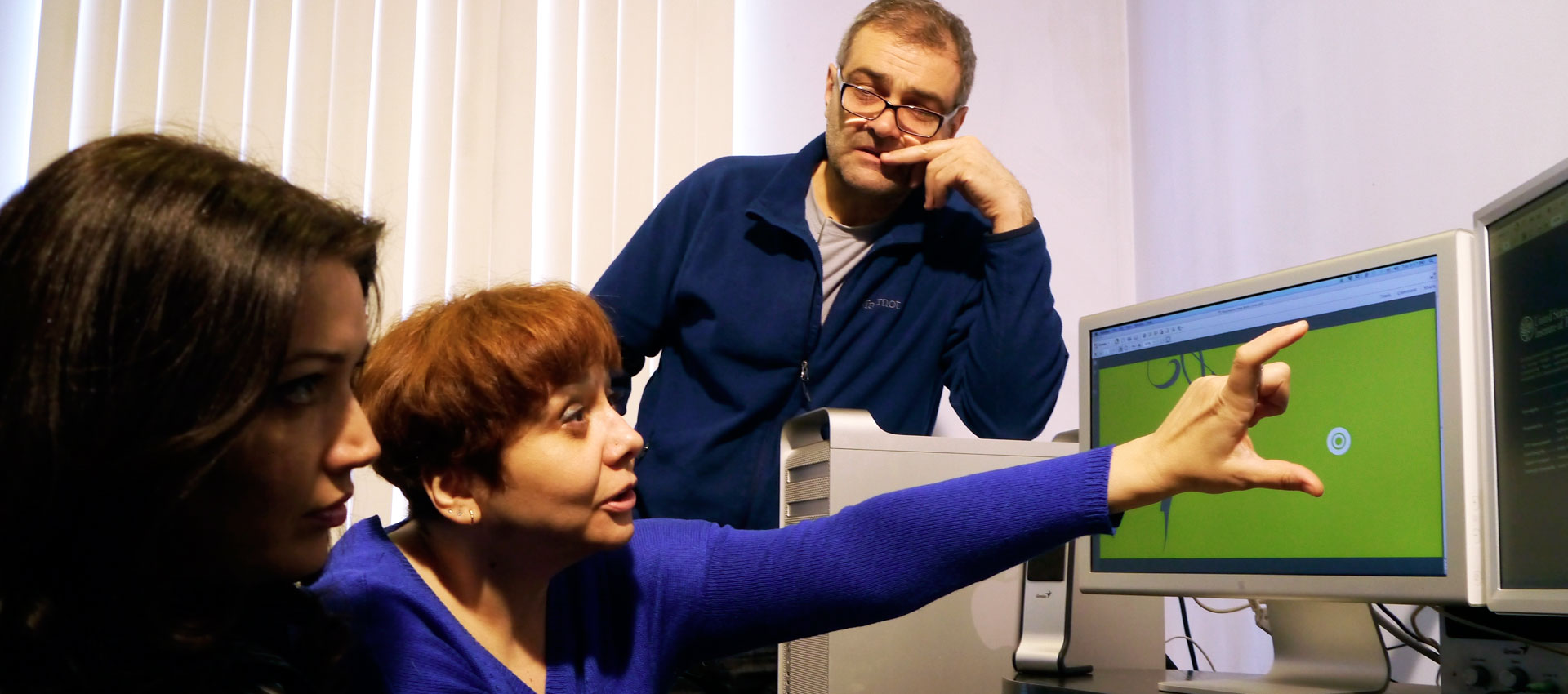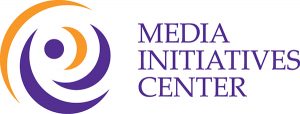

Media Initiatives Center has been working in the media sector of Armenia for more than 25 years. We support freedom of expression, as well as establishment and development of independent media. We are involved in the improvement of media legislation and the protection of journalists’ rights. Our motto is Information is Power for Change. We have long-term experience in media trainings, media literacy and media content production.
We started our activities in Armenia in 1995 as branch of the US-based Internews Network. In the professional community, we are more known as Internews Media Support NGO. In 2013, we were renamed to Media Initiatives Center and entered a new phase in the development by maintaining our mission and values. We continue to believe that civil society cannot exist apart from independent and strong media. Today Media Initiatives Center is an Armenian organization and an inseparable player of the local media community.
Our Logo


The circle in the center of the logo symbolizes the organization’s values and objectives. The segments deviating from the center are associated with waves allocating influence over the space, and their specific distribution symbolizes a spiral of time and history. The wave-segments symbolize influence of processes, happening in the “center”, on the environment and society, and indicate initiative, activities, movement and development. Orange and violet symbolize education, creativity and unity.
Our Mission Statement
To contribute to the diverse and harmonious development of the society, and strengthening of democratic values through creative and innovative development as well as dissemination of free and independent information.
Media Initiatives Center Charter
The latest version of Media Initiatives Center Charter was approved by decision No.01/05 of the General Meeting of Members of “Media
Initiatives Center” NGO.
Our Goals Are:
to assist the fulfillment of one of the basic human rights – freedom of getting and disseminating information;
to support the production of diverse, pluralistic and comprehensive information for the society;
to support the activities and development of free, responsible and professional media;
to support training of professionals involved in the production and dissemination of information;
to develop media education and literacy, to have an educated consumer;
to support innovative trends and new approaches to social media in the sphere of information;
to support optimization and improvement of the legislative framework for providing free media activities, free information flow, including access to sources of information;
to use media for promoting discussions on various issues of public importance, including those related to social, environmental, economic, peacebuilding and human rights;
to support coverage of important public events;
to promote the use of media tools in education processes;
to spread media among the public at large using different traditional and innovative methods.
Organization’s Objectives Are:
to support the production of balanced and diverse information, the use of alternative and innovative approaches in media;
to develop curricula for journalists and media specialists, to conduct trainings, conferences and contests;
to participate in spreading of media education, to promote media criticism, media analytics, civic journalism;
to be involved in the development and improvement of the legislation and other documents, which impact the media sector;
to provide legal assistance to journalists and mass media for protecting their interests and rights;
to improve the level of technological literacy of journalists and other specialists of the media sphere, to provide relevant consultancy;
to assist in peacemaking processes in the region, regulation of conflicts, establishment of dialogue and discussion of close issues, using media as a means;
to assist in development of documentary filmmaking, to develop audio-visual production, to assist in creating manuals and textbooks related to communication and media;
to conduct creative and organizational (media) audits for media outlets, research in the sphere of communication, including that of media demand, advertising and production.
Media Initiatives Center’s Code of Ethics
Following its mission, the Media Initiatives Center adopts the work principles presented below:
1. Freedom
1.1 We protect freedom of speech. Any restriction to make unimpeded use of information sources endangers our mission to serve the society.
1.2 We denounce all the obstacles to providing and obtaining information, considering it a violation of free information.
1.3 We accept the freedom of feedback and criticism if it is based on checked facts and is clearly differentiated from suppositions and interpretation.
2. Justice
2.1 Pressures during carrying out professional responsibilities shall not affect the presentation of multi-sided, accurate, complete, high-quality and relevant information. It is not permissible to present information for indirect payment, or for the purpose of advertising, nor is it permissible to be an interested party while presenting any kind of information.
2.2 Personal life privacy, copyright, secrecy of the information source, the right not to convey data to individuals and legal entities, are always respected. However, they can be put aside if the individual and the society face serious and inevitable danger.
2.3 In the process of revealing the reality, unlawful ways of finding documents and materials, as well as getting interviews, should be avoided. Indirectly obtained data must be checked with particular care.
3. Dignity
3.1 The facts shall not serve the purpose of compromising, insulting, or humiliating a person or an organization. The nationality, race, religion, physical and intellectual conditions of a person shall not be labeled.
3.2 It is necessary to obtain the consent of individuals, who are victims of violation, have incurable or severe diseases or are criminals, before making their or their relatives’ information public. Persons that suffer from a severe grief or a psychological shock, as well as people below legal age, should be free from inappropriate pursuits of journalists.
3.3 Significant mistakes, misleading or distorted messages should be immediately corrected. The refutations of people and organizations that have suffered from damaged reputation or dignity should be published without major semantic changes.
4. Equality
4.1 We serve all the groups of the society regardless of their political, economic and ideological aspirations. Ties of kinship, family ties, friendship and other relations cannot change the principles of equality that we have adopted.
4.2 We encourage versatile information, not being restricted by obvious, entertaining or superficial information.
4.3 We constantly support and assist all our colleagues and advocates. We help everybody who, based on their purpose, vocation, job or profession, turns to us.
5. Tolerance
5.1 Tolerance is the supreme factor in our activities. We consider persons belonging to different religions, nationalities, races and political parties to be full members of the society who have the right to inform and to be informed.
5.2 We consistently do our best to create guarantees for information independence. However, we understand that we should neither split the society by our activities, nor condemn any public, political and civil initiatives.
These are the main principles of our activities. We are obligated not to ever violate them for personal or material purposes, or for the purposes of propaganda, libeling, as well as for fulfilling direct or indirect orders, distorting or hiding information. We are obligated to be guided by this code of ethics in our daily work.
We are accountable in front of the society, and are obliged to confirm and equally give consideration to praises, criticisms and complaints directed towards us.

